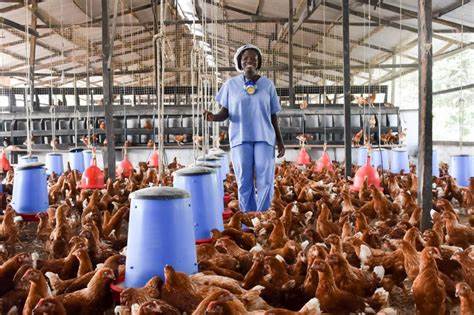The Food and Agricultural Organisation (FAO) is advising farmers to desist from using antibiotics to boost egg production.
The National Project Coordinator for Antimicrobial Resistance at FAO, Kofi Afakye, says the practice causes what is known as antimicrobial resistance (AMR), where germs become resistant to antibiotics.
He says this makes treatment of diseases difficult and costly.
“More farmers use antibiotics as prophylaxis for egg boosting and for growth promotion, which shouldn’t be the case. When they don’t make the appropriate use of these antimicrobials, there’s development of antimicrobial resistance,” he said. “When we get sick then our sickness becomes very difficult to treat”.
Antimicrobial resistance occurs when bacteria, fungi, viruses, and parasites change and become resistant to antimicrobial drugs like antibiotics to which they were originally susceptible.
Factors such as the misuse or overuse of antimicrobials in animals and humans and exposure to falsified drugs all contribute to AMR.
Withdrawal period
This is the time allowed for remnants of the antibiotics to drain out of the animal before it is consumed.
Depending on the particular antibiotics, farmers have been advised to wait for the antibiotics to drain out before selling their animals.
However, studies suggest 98 percent of farmers in Ghana are not observing the withdrawal period.
“When we give these antibiotics to these animals, we should wait for this period to elapse before we slaughter the animals for food or use the products from the animals as food,” Dr. Afakye advises.
In the situation where farmers defy this practice, there are likely traces of these antimicrobials within the animal’s system or the products.
This means that humans who consume these foods are indirectly consuming these antibiotics which can result in Antimicrobial Resistance.
Dr Afakye was speaking at a training of media practitioners on Antimicrobial resistance in Kumasi.
The workshop is part of the implementation of the National Action Plan on Antimicrobial Resistance Policy.
The FAO is collaborating with its one-health partners, to implement the National AMR Action Plan (NAP) which was launched in 2018 to fight AMR using a multi-sectoral approach.
The Ghana National Action Plan (NAP) was developed based on the model recommended in the Global Action Plan.
Collaborators have been collecting local data on on-going interventions.
The AMR policy document has been used to analyse the data.
Latest Stories
-
CHAN 2024Q: Ghana’s Black Galaxies held by Nigeria in first-leg tie
31 minutes -
Dr Nduom hopeful defunct GN bank will be restored under Mahama administration
1 hour -
Bridget Bonnie celebrates NDC Victory, champions hope for women and youth
1 hour -
Shamima Muslim urges youth to lead Ghana’s renewal at 18Plus4NDC anniversary
2 hours -
Akufo-Addo condemns post-election violence, blames NDC
2 hours -
DAMC, Free Food Company, to distribute 10,000 packs of food to street kids
4 hours -
Kwame Boafo Akuffo: Court ruling on re-collation flawed
4 hours -
Samuel Yaw Adusei: The strategist behind NDC’s electoral security in Ashanti region
4 hours -
I’m confident posterity will judge my performance well – Akufo-Addo
4 hours -
Syria’s minorities seek security as country charts new future
5 hours -
Prof. Nana Aba Appiah Amfo re-appointed as Vice-Chancellor of the University of Ghana
5 hours -
German police probe market attack security and warnings
5 hours -
Grief and anger in Magdeburg after Christmas market attack
5 hours -
Baltasar Coin becomes first Ghanaian meme coin to hit DEX Screener at $100K market cap
6 hours -
EC blames re-collation of disputed results on widespread lawlessness by party supporters
6 hours

